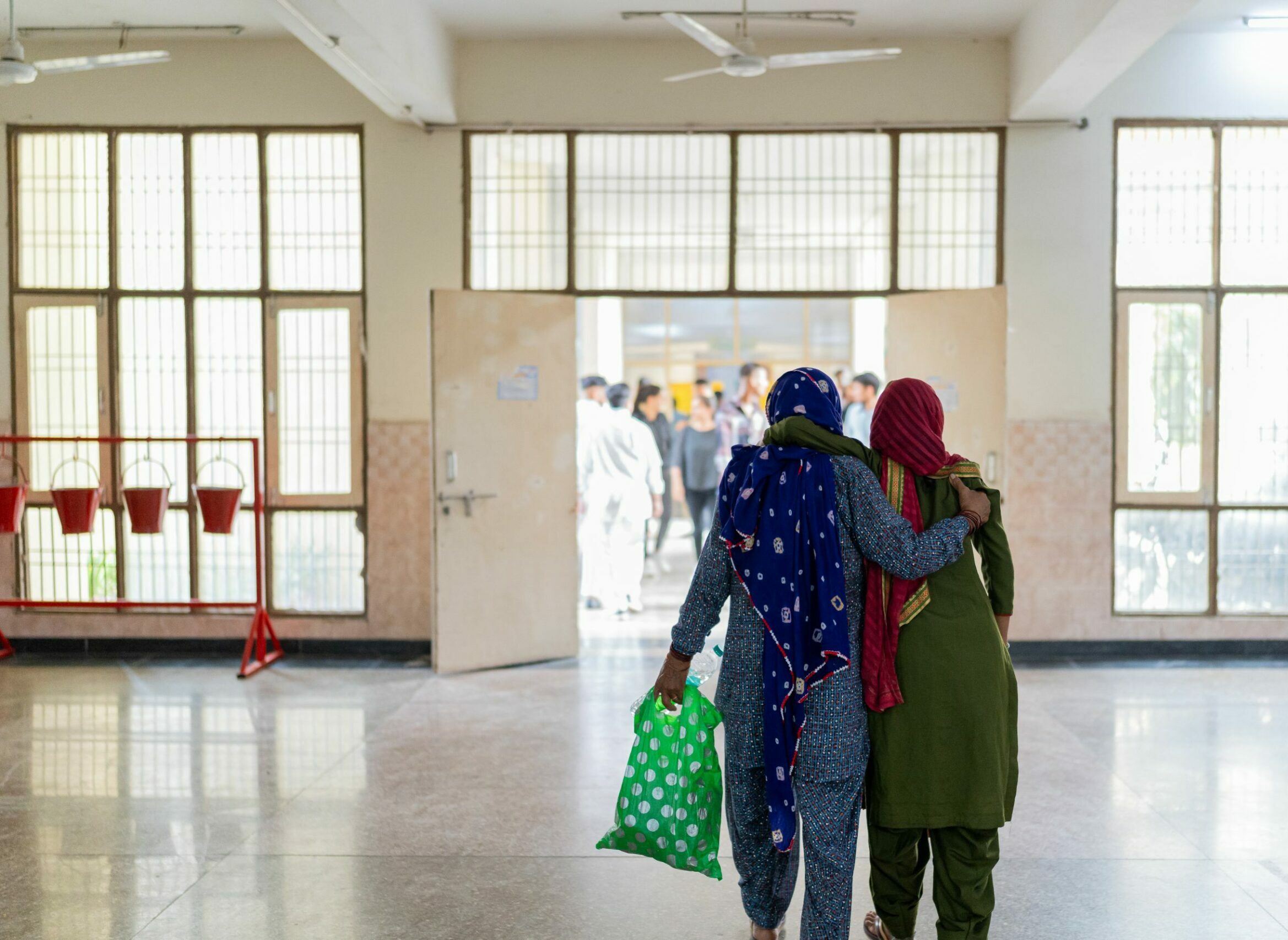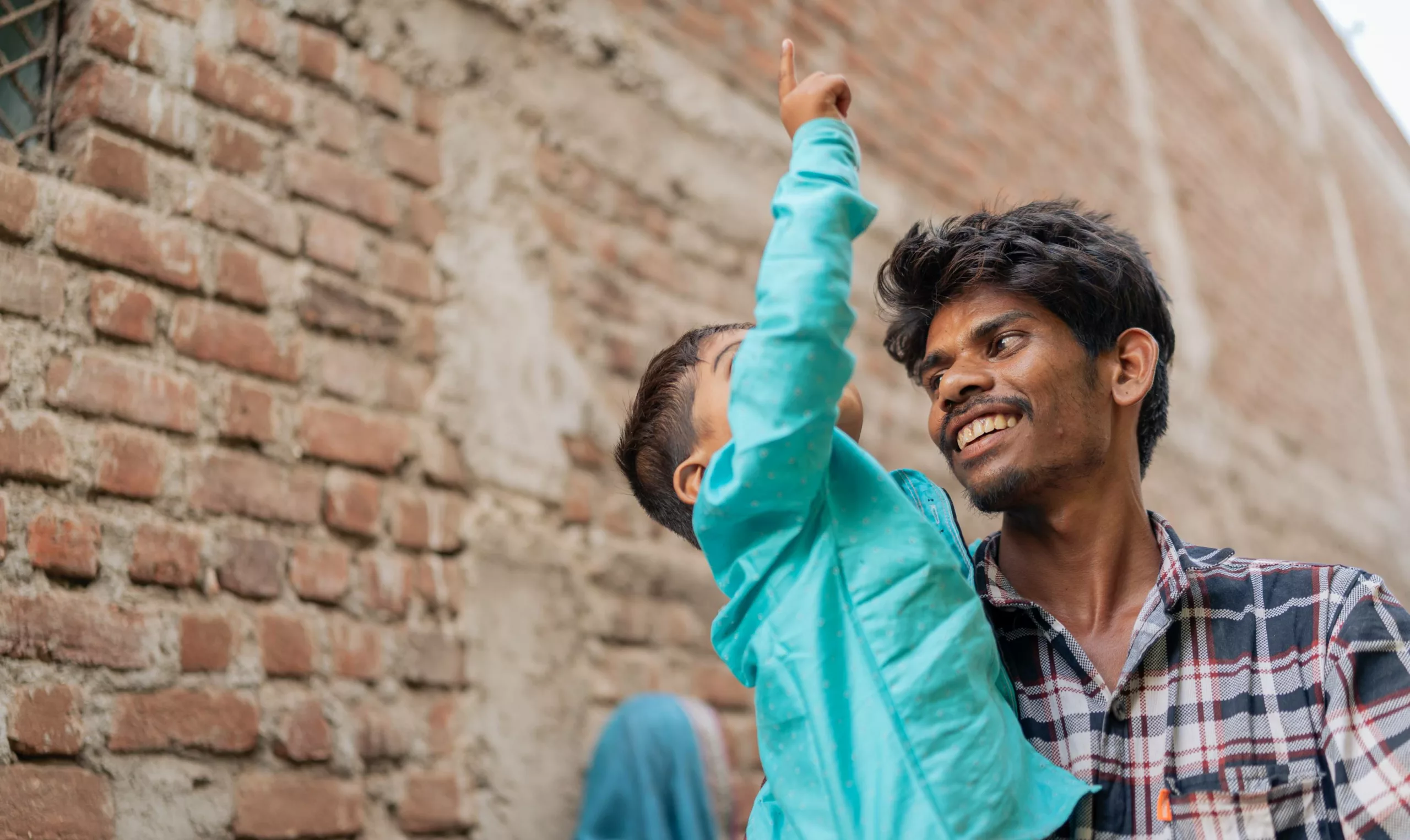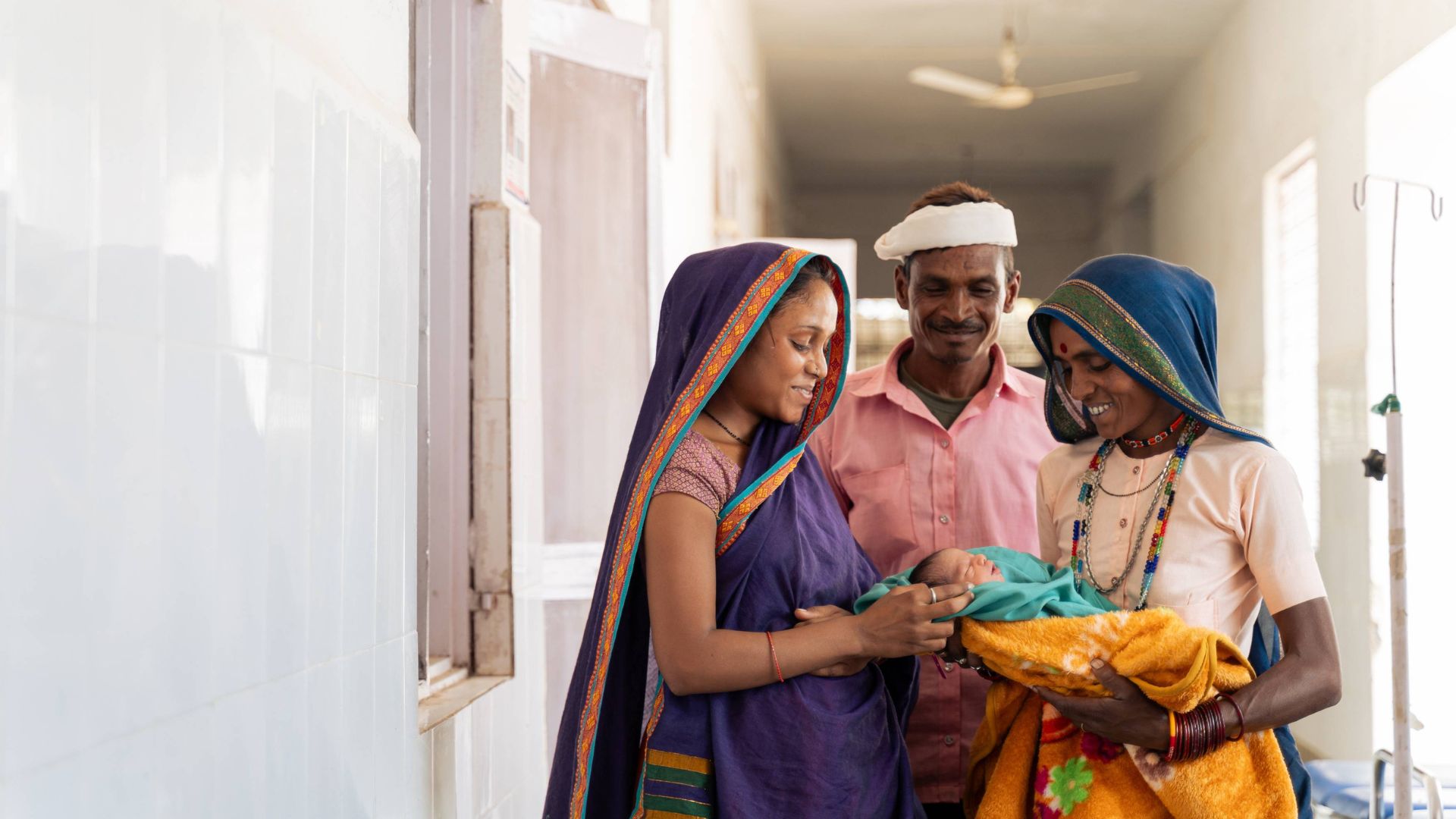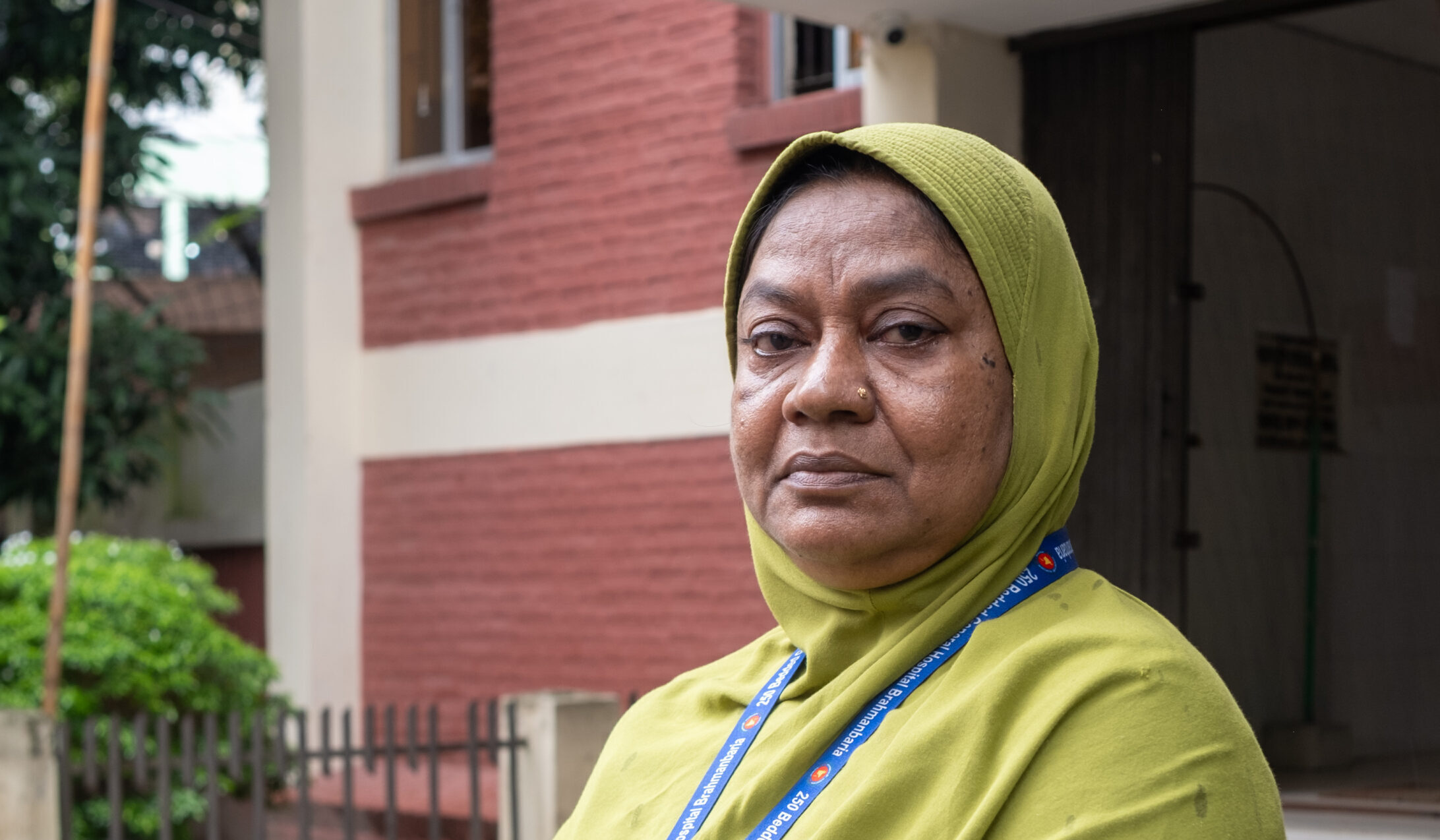

Between prayers and protocols: A day in the life of a nurse
This story is part of our 10-year anniversary celebration, honoring the many ways in which families, caregivers, communities, and health systems come together to care.
For the last 26 years, Mahamuda Begum has devoted her life to caring for others, embodying the strength and compassion that define her role as a nurse.
Mahamuda is the senior staff nurse at the 250 Bedded General Hospital in Brahmanbaria, where she oversees the 41-bed maternity ward. For the last year, she has also conducted Care Companion Program (CCP) sessions.
In the photo essay below, she welcomes us into her world, offering us an intimate glimpse into her day — the dedication behind her work, the motivations that drive her, and the quiet worries that accompany the care she gives to others.
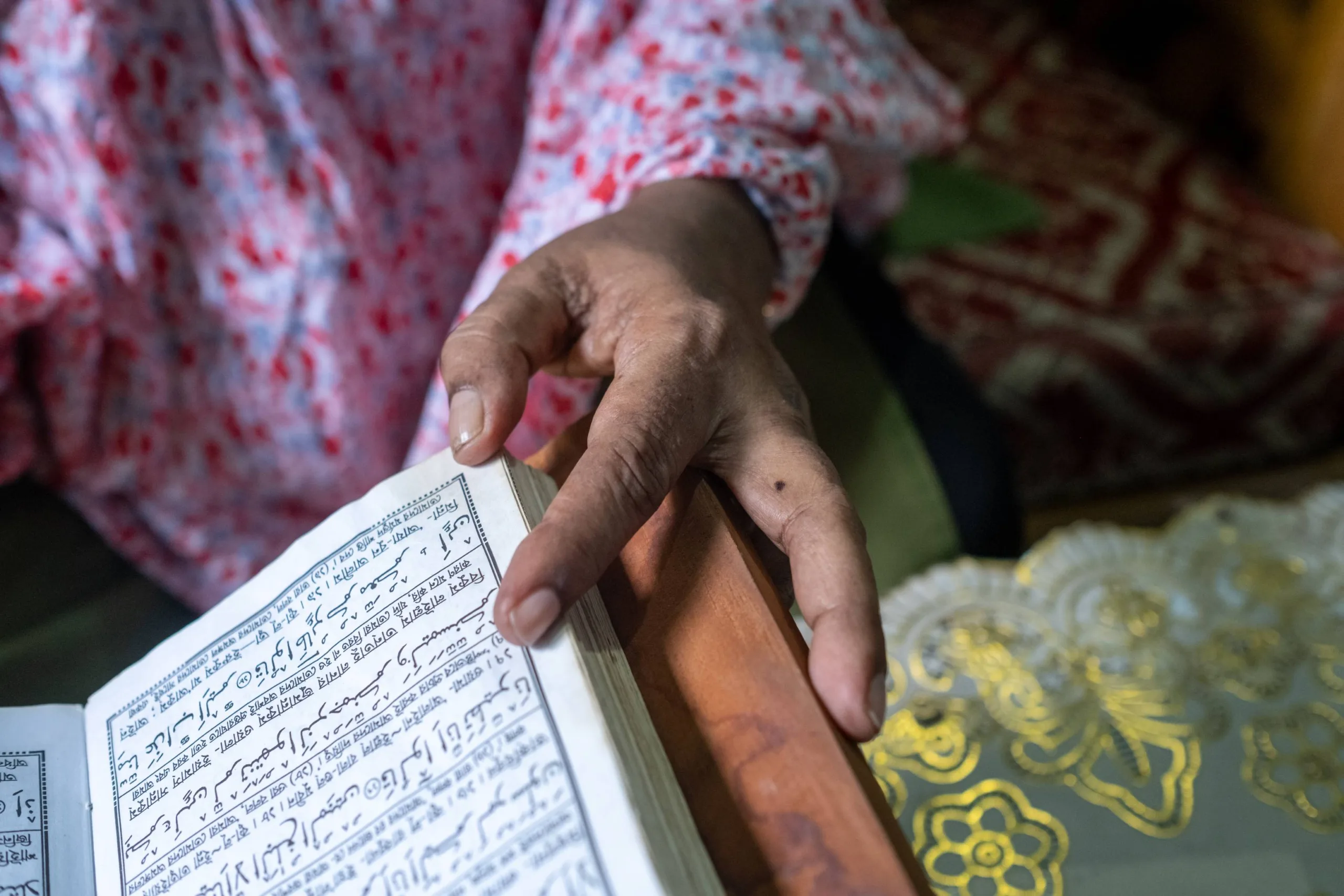
4:20 AM: My day begins early every morning, before the world wakes up. I start with a prayer, followed by reciting a few duas. As the sun rises, I offer another prayer and spend time reading the Quran. These moments of peace and reflection help me get ready for the busy day that lies ahead.
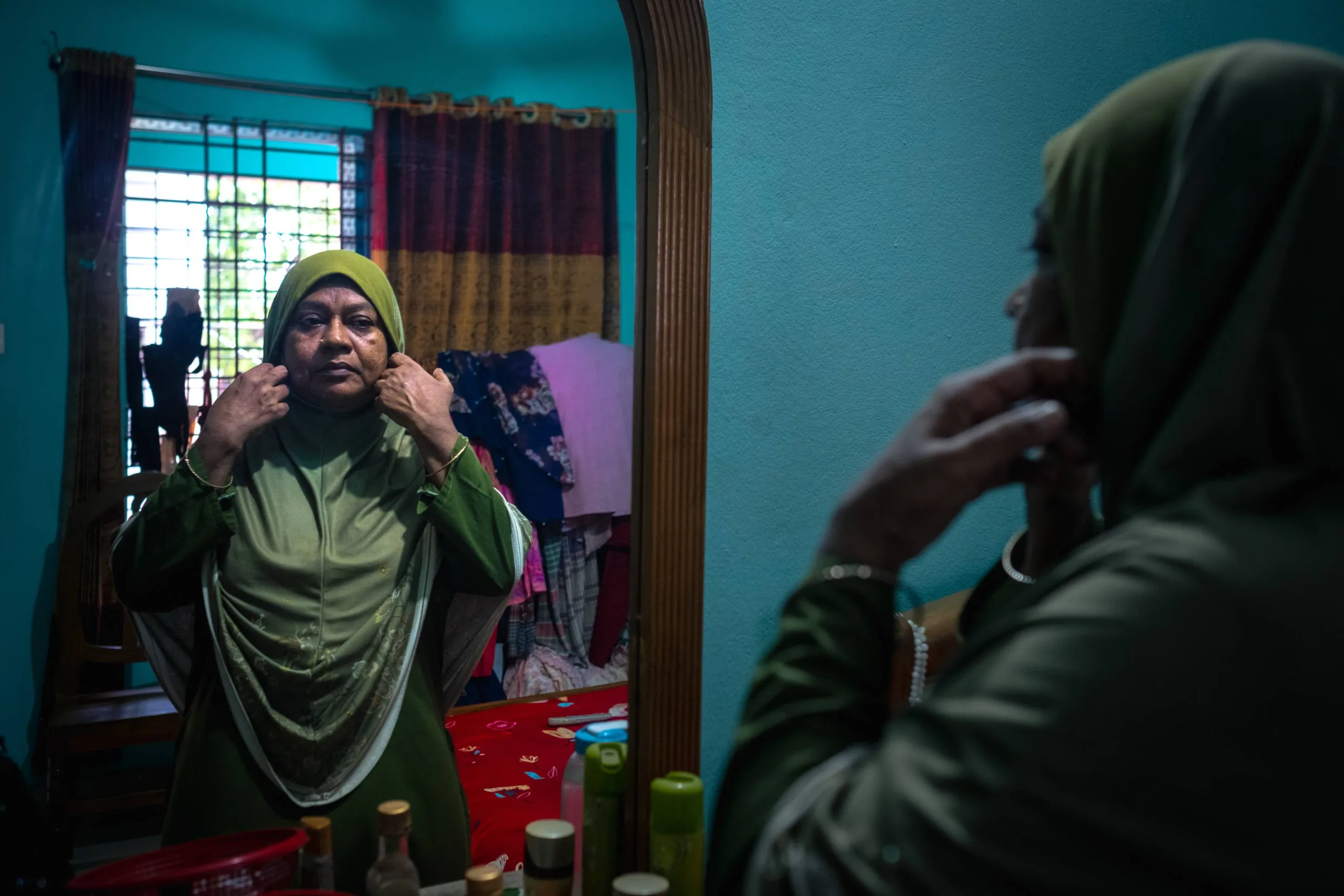
4:45 AM: Once I finish my prayers, I head to the kitchen where I make tea, knead the dough, and prepare hot chapatis, along with some vegetables. My younger daughter goes to the madrasa (school) so I make sure she has a good breakfast, before sending her off.
Since losing my husband to Covid-19, it’s just been my two daughters and me. Supporting them financially and making sure they have a good education is now my responsibility alone, and I try to do it the best I can.
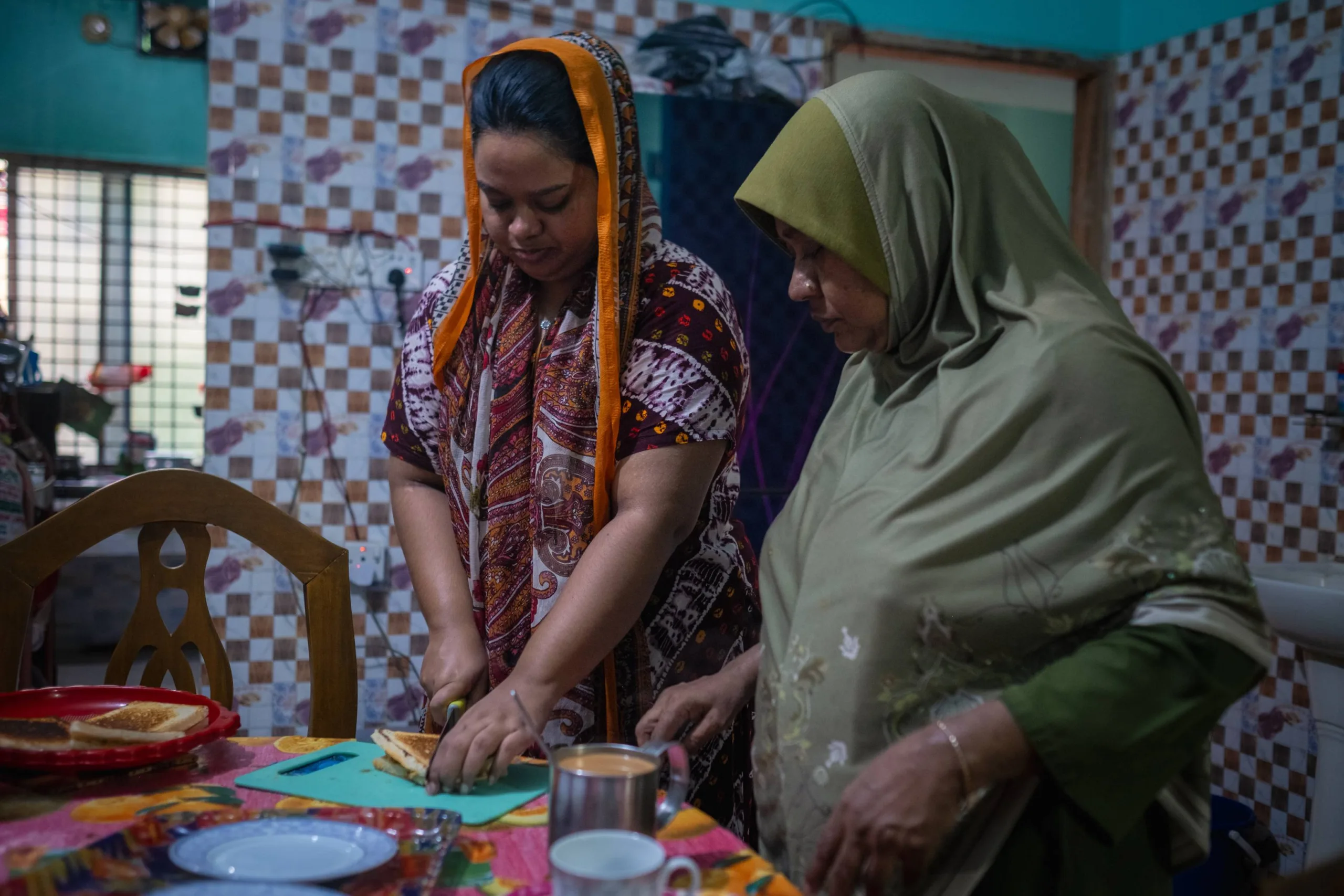
5:15 AM: After finishing up in the kitchen, I shower, get dressed, and sit down for breakfast with my older daughter. She recently completed her exams for a textile engineering degree, and we are waiting for her results to see where she might find a job.
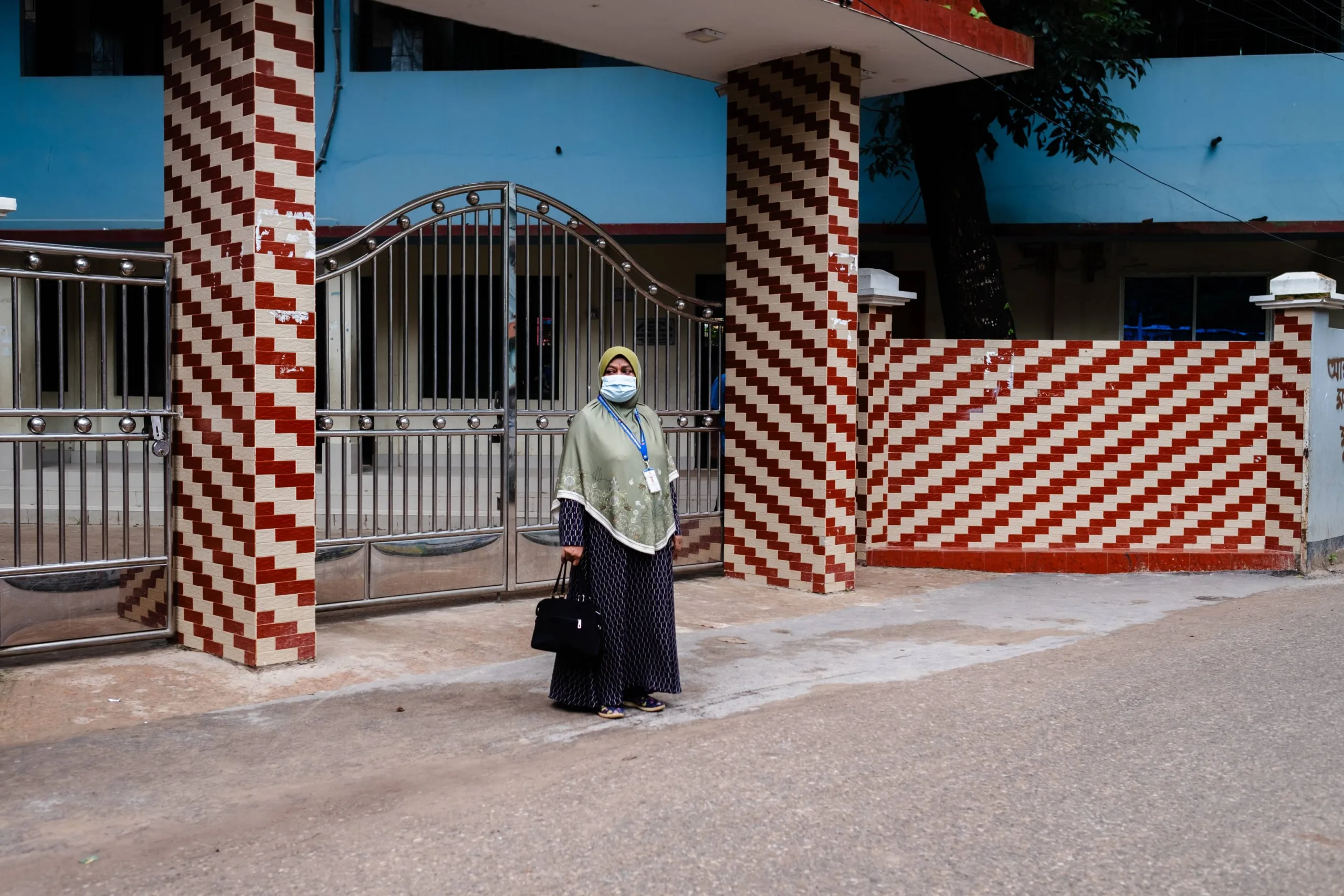
5:45 AM: My shift starts early at 6 am. Luckily, I live only half a mile away from the hospital and it takes less than 15 mins to get there by rickshaw — an easy commute!
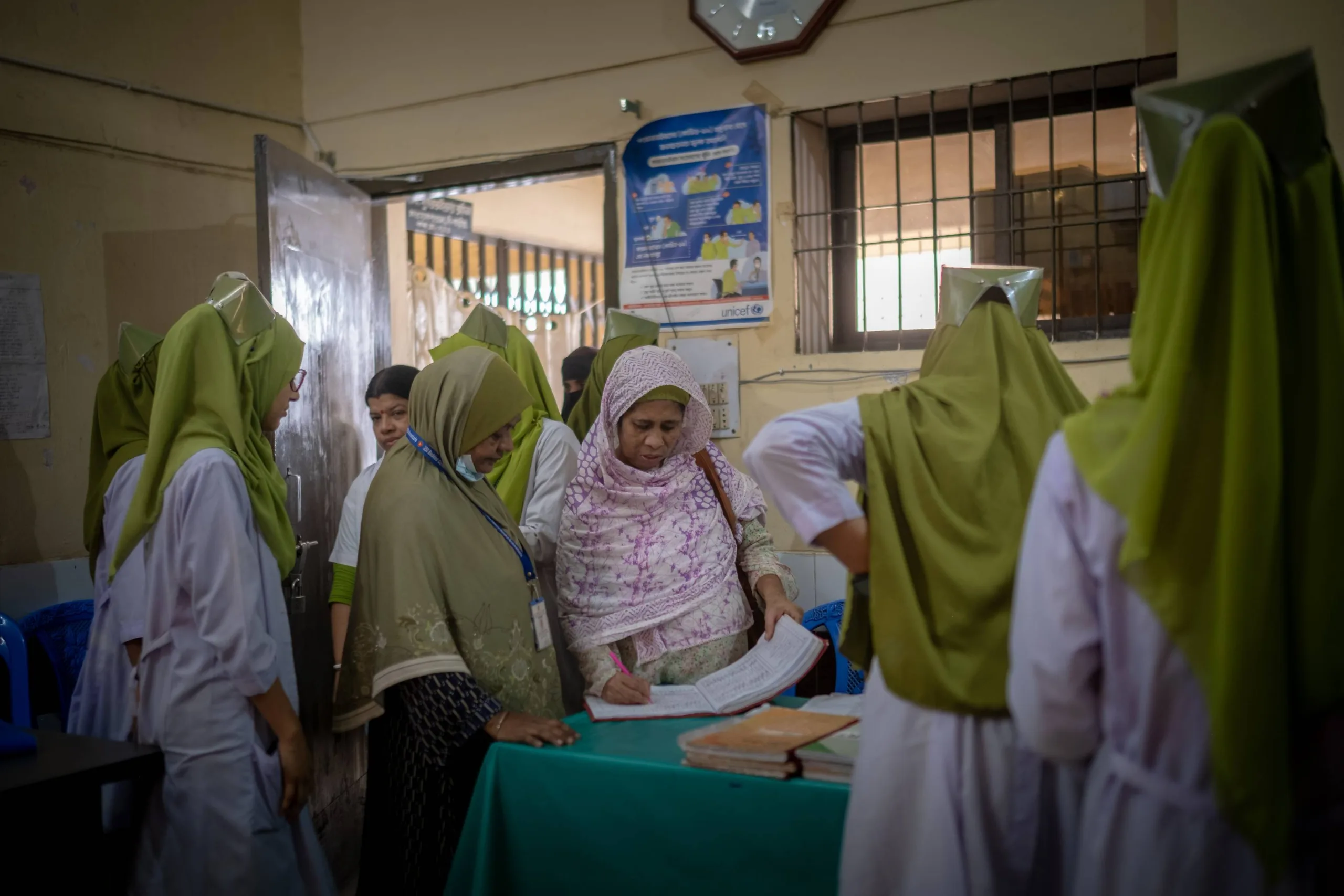
6:30 AM: After completing all the entry formalities upon reaching the hospital, I change into my uniform and start my rounds in the maternity ward. I begin by greeting my patients, asking them how their night was. Some report feeling better, while others share their concerns — ongoing pain from C-sections or complications like bleeding. I carefully note each detail to relay to the doctors during their rounds.
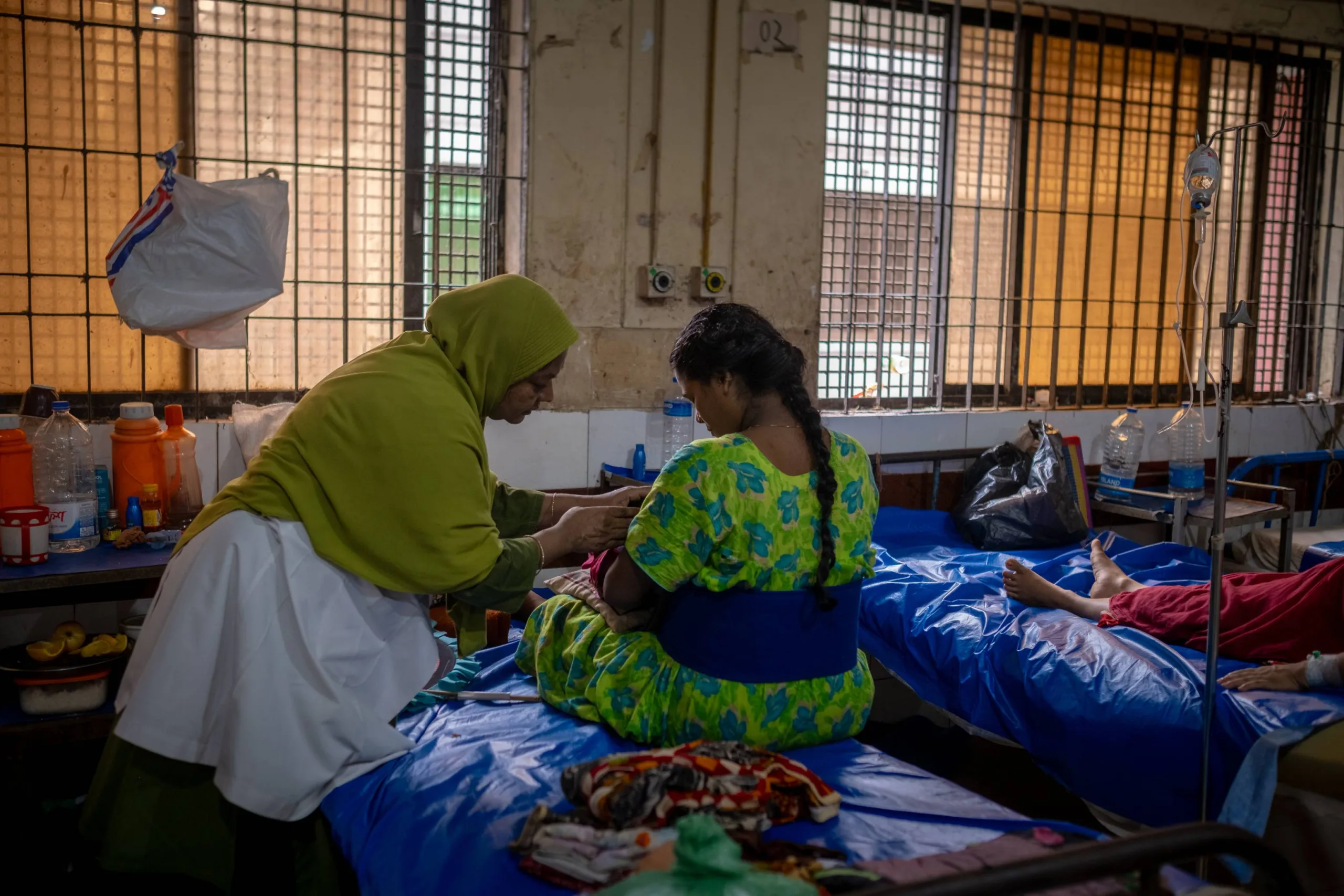
9:00 AM: An important part of my morning routine is conducting CCP sessions for expectant mothers in my antenatal care corner. Typically, this takes place between 9-10 a.m., but sometimes it runs until 10:30 a.m. if we need to wait for additional participants. Once I have a minimum number, I arrange the materials and the room to make sure everything is ready for an engaging conversation.
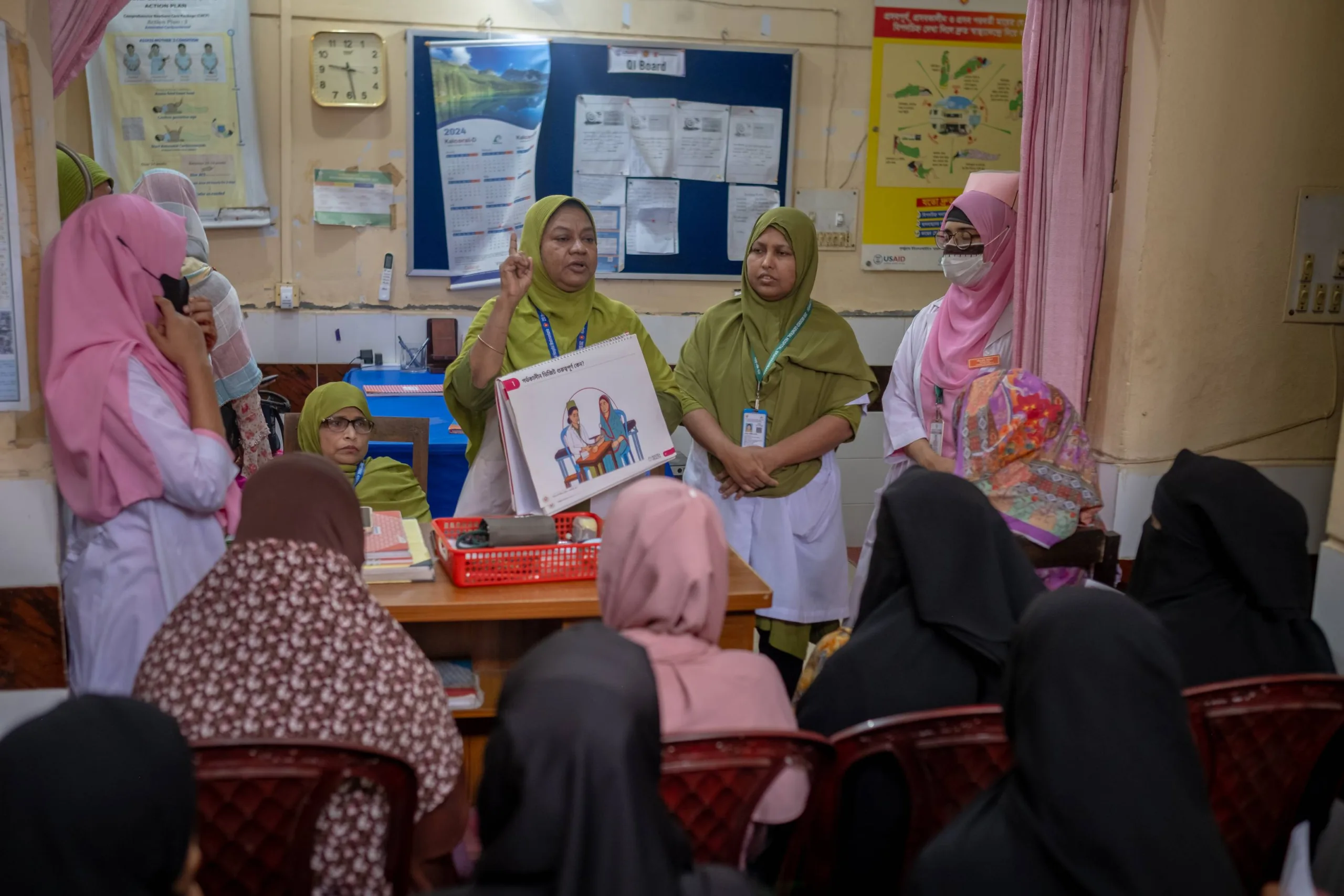
These sessions are essential for a healthy pregnancy and safe delivery. If a mother doesn’t come to us during her pregnancy we won’t know if she has anemia, diabetes, swellings, headaches, or blurred vision. We teach them how to understand and monitor these crucial symptoms. We also tell them which foods to eat so both the mother and baby remain healthy, and how to prevent iron deficiency to avoid anemia.
We also advise them, “For a healthy delivery, it’s important to come to the hospital. Our delivery room is open 24 hours — if you start feeling pain, come to us right away.” We tell them when labor pains might begin, how long they can last, and reassure them that we’ll be here to support them throughout.
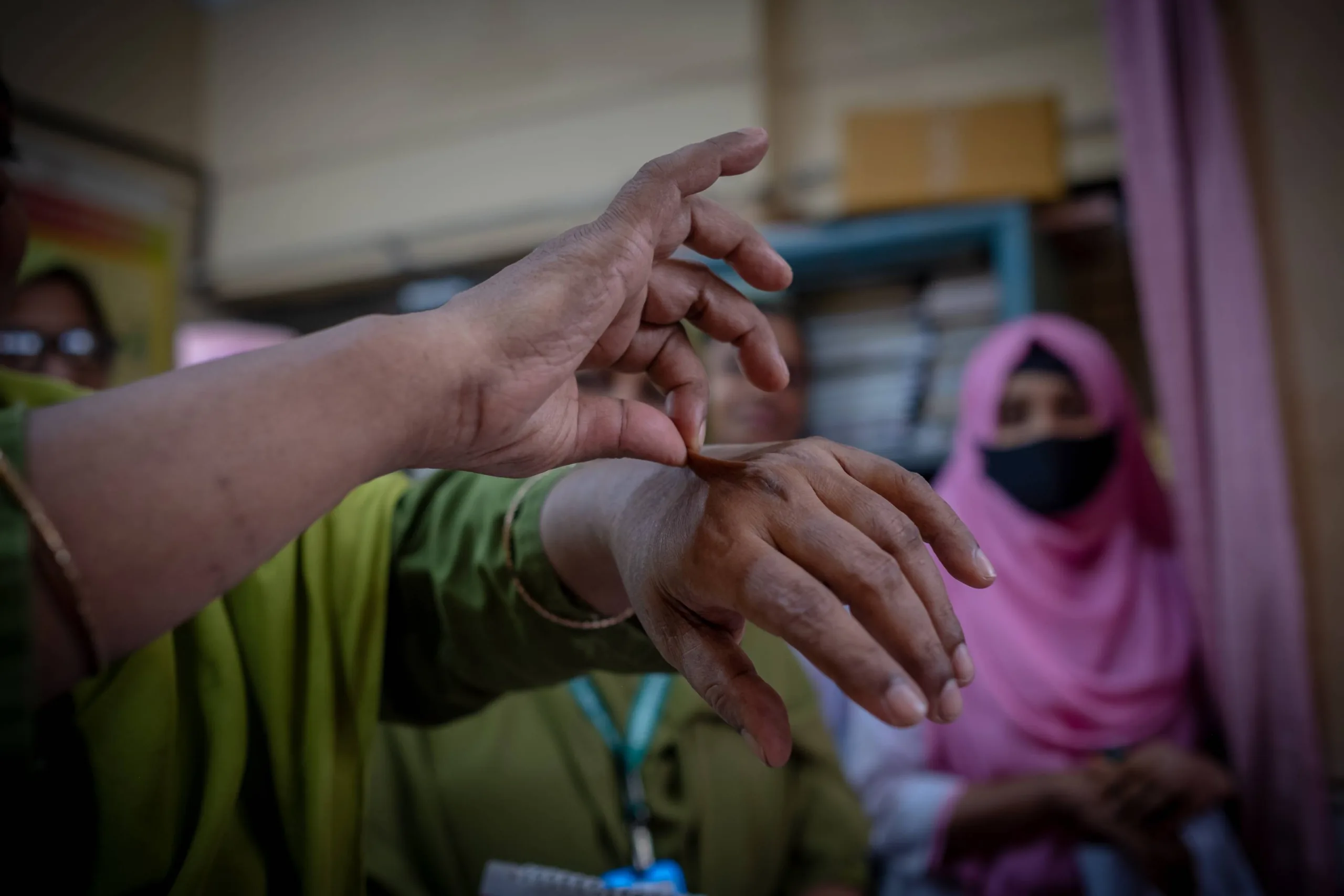
Additionally, we see young mothers, sometimes as young as 15, who don’t fully understand how to care for themselves. We gently explain, “The legal age for marriage in Bangladesh is 18, and it’s recommended to wait until at least 20 to have children. But now that your baby is coming, it’s important that you eat properly and stay healthy, even when you don’t feel like eating.”
For me the prenatal counseling session is more important than the postnatal one. While the mother and baby connect naturally after birth, the pregnancy months are our best chance to guide mothers on ensuring a healthy birth.
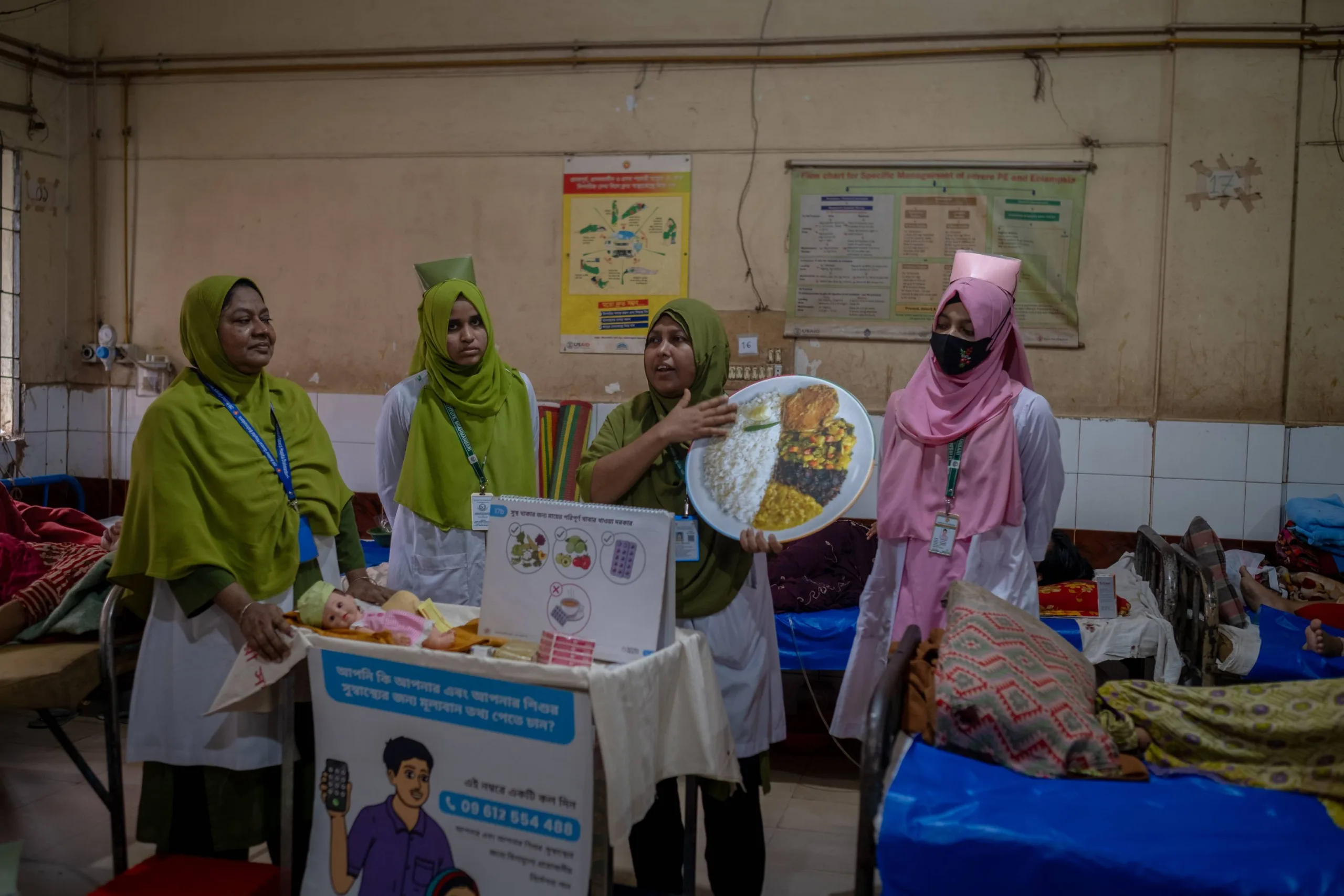
10:30 AM: Once I finish the antenatal care session, I head to the maternity ward to assist my colleagues in conducting the postnatal CCP session. I help them demonstrate the correct way to breastfeed, kangaroo mother care, and how to keep the baby warm by providing skin-to-skin contact. It’s also important for a new mother to have a healthy, nutritious diet, and so I suggest some foods they can eat.
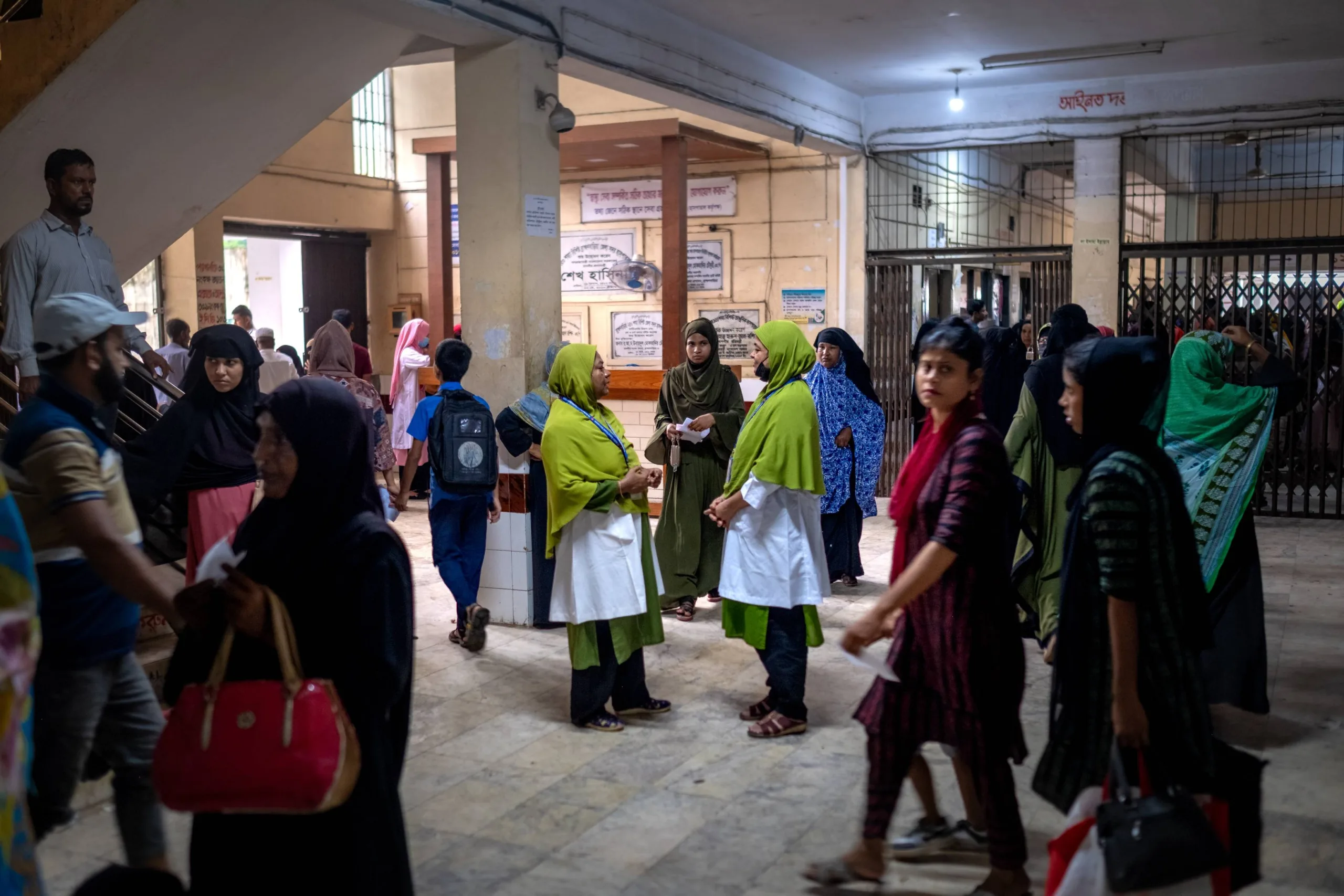
11:00 AM: As nurses, there isn’t much free time — we get a quick 15-minute tea and snack break. If I have any tasks to complete with someone, I use this time to meet them. Otherwise, I enjoy a moment of connection with colleagues at the hospital.
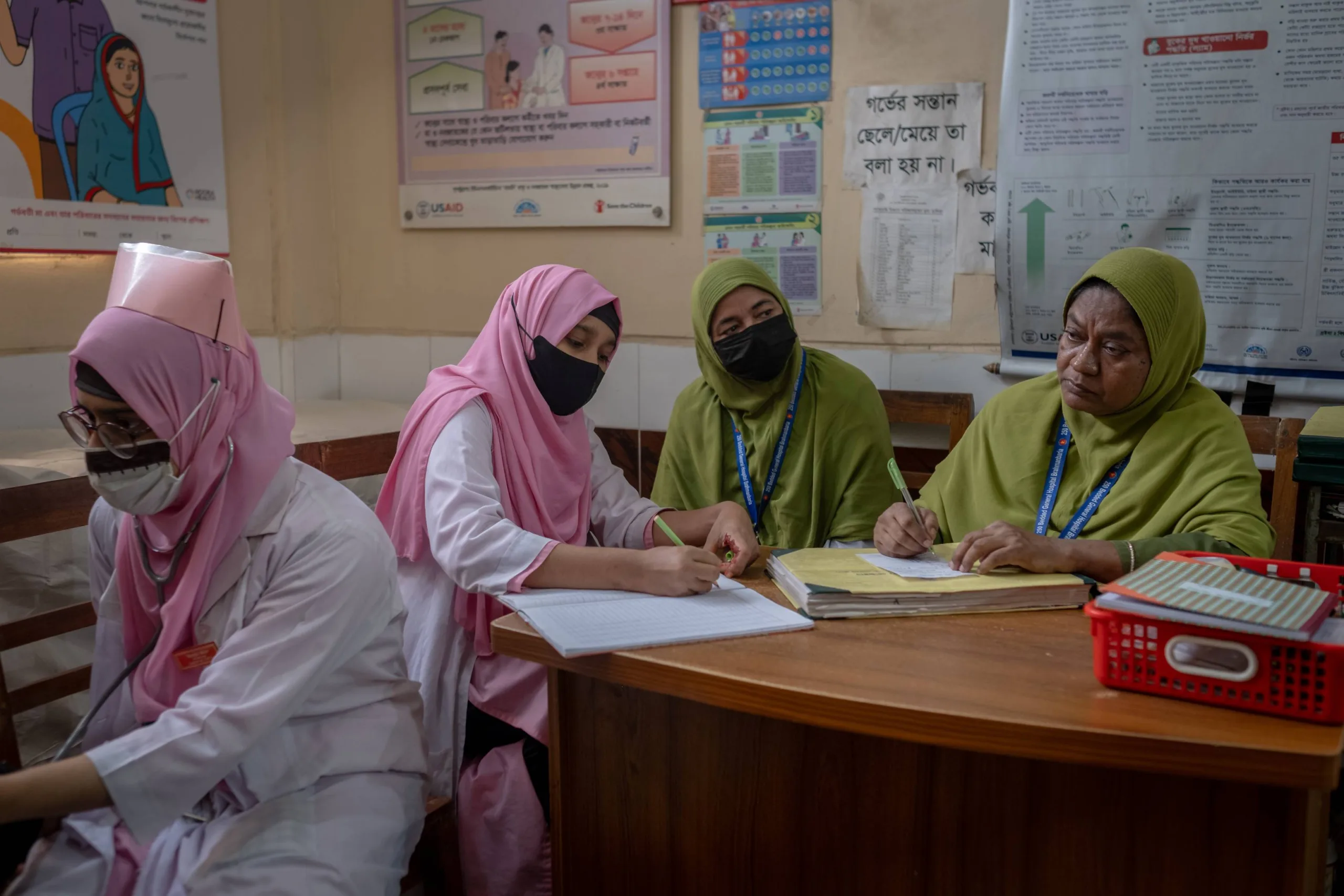
11:15 AM: Post-break, it’s time for me to head back to my antenatal care corner and complete some administrative tasks. I’m responsible for filling out various reports, including weekly and monthly updates. I track total patient numbers, arrivals, and discharges, but we focus most on the monthly report. At month’s end, we review all patient data, noting how many came for their first, second, third, and fourth checkups, as well as the number of normal deliveries. This data helps us monitor and support patient progress over time.
During this time, the midwives and I also conduct regular patient checkups. Every day, 40-50 mothers come for their antenatal care visits — around 35 are new patients, while others return to show us their ultrasound or blood test reports so we can advise them and add the data to their patient record.
Having trained as a midwife myself, I see these moments as a chance to guide the younger midwives. They often ask me questions, such as calculating the estimated due date based on the mother’s last menstrual period. I teach them to add nine months and seven days, explaining that it’s an approximation and not an exact date. Nursing students also join me in these checkups, learning hands on as we work together. While I manage the patient register, they take turns measuring the mother’s weight, blood pressure, and height. We record each detail, and then counsel the patient based on the information we have.
The afternoon call to prayer comes around 1 p.m., and the flow of patients starts to slow down. I also take a few minutes to pray at the hospital.
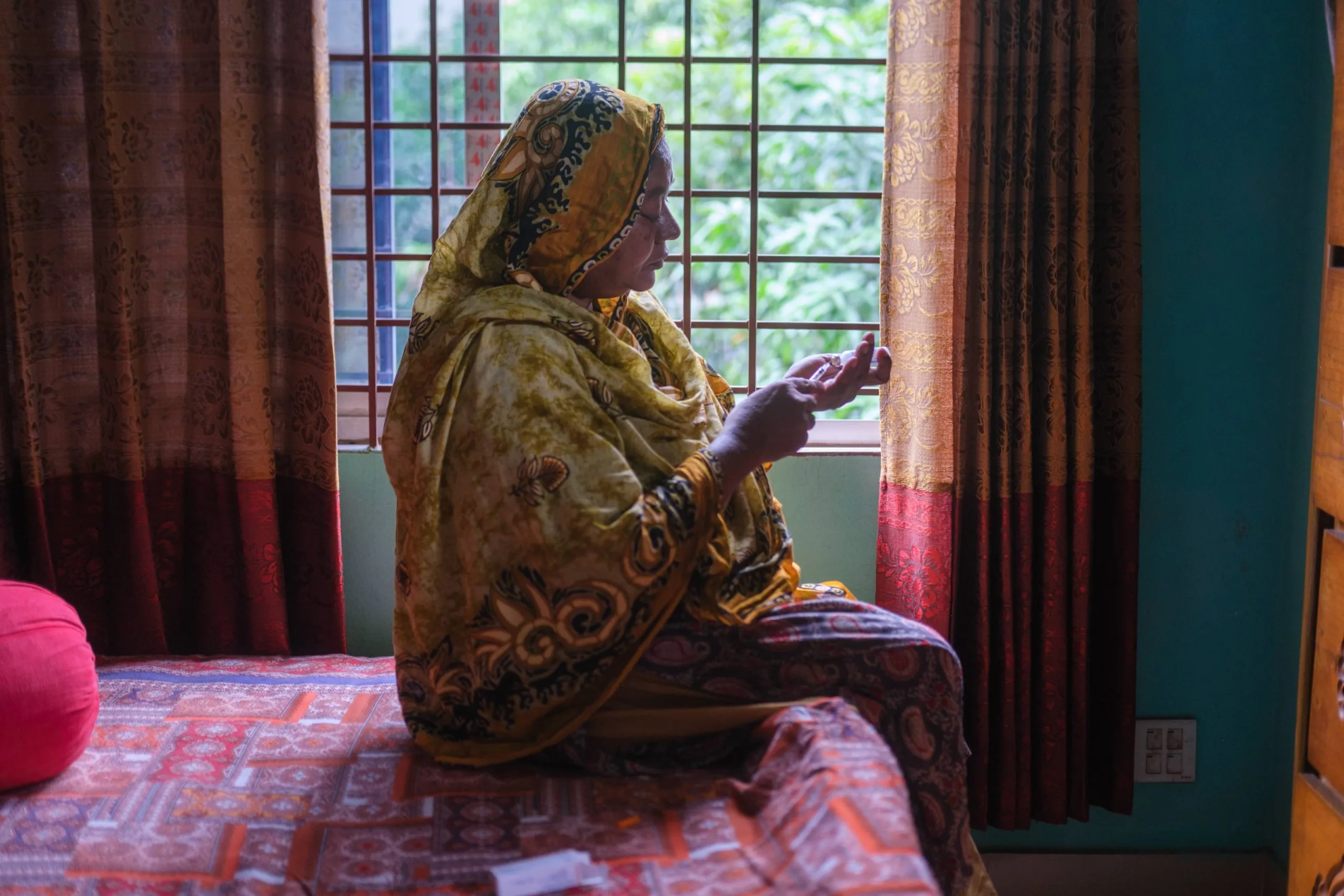
4:00 PM: My shift usually lasts eight hours so I clock out at 2 p.m. and head home. At home, I eat the lunch my daughter prepares for me and rest for a bit. I also perform my prayers, before heading out for my evening walk.
For the last 15 years, I’ve seen both sides of healthcare — as a nurse caring for mothers, and as a patient managing diabetes.
In the beginning I’d take tablets, but during a nurse training session I learned that insulin might be a better option. Recognizing its effectiveness, I spoke to my doctor, who mentioned that many people are afraid of injecting themselves with it. I assured him, “As a nurse, I shouldn’t be afraid. If you think it’s best for me, I’m ready.” And so, for the last three to four years I’ve been taking insulin injections daily and have established a routine to keep my blood sugar levels under control.
Every evening, I make sure to walk for one hour, from 4 to 5 p.m. I’m also very strict with my meal portions — just one chapati in the morning and another at night. My daughter often helps me with preparing the meals, stepping in on days I can’t make the chapatis myself. At the hospital too, my colleagues support me, reminding me to skip sweets when I’m tempted. When I go to my parent’s house, my whole family, especially my siblings, help me to keep my diabetes in check. I wouldn’t be able to do it without them.
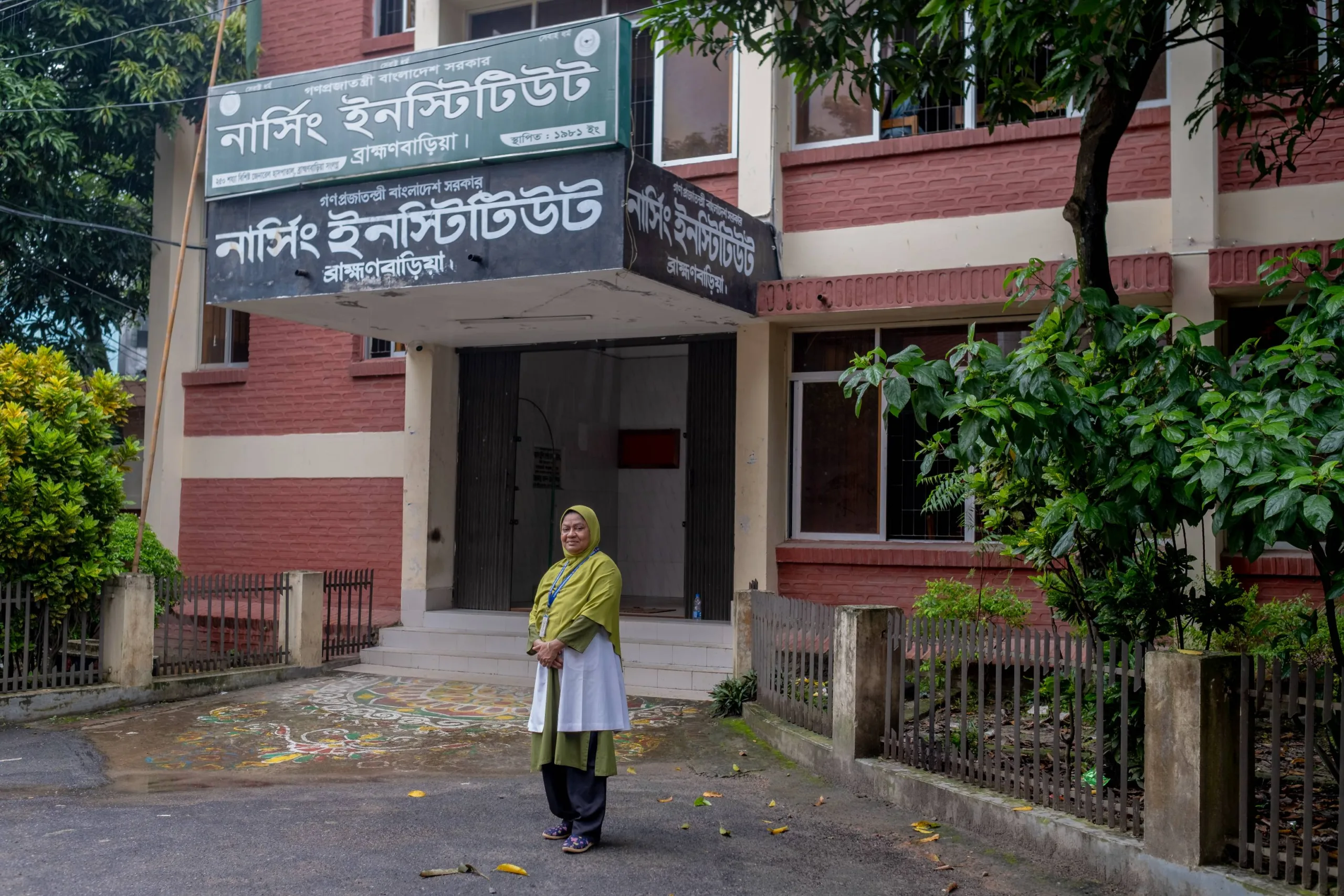
5:00 PM: After my walk, I return home to perform my evening prayer, and then spend some time unwinding on my phone or watching TV. Typically, I have dinner between 9 and 9:30 p.m., and by 10 p.m. I go to bed, preparing for another early start.
My work isn’t easy, but I find happiness in knowing that I’m doing something good each day. Being a nurse is not just my profession; it’s my responsibility, my duty, and means everything to me. There is no greater joy than seeing a patient recover because of my care and leave with a smile, saying, “Sister, I’m off now.” Ultimately, it’s Allah who heals, but I feel grateful to have played a small role in their journey to wellness.
A special thanks to Abhijit Sarker Arka for bringing this story to life!

